Visit the Last Day of a Formidable Exhibition about Music in Nature [ENG - FR]
Hello dear curious and discoverers of unexpected and unusual places !
Today, I would like to share with you a visit to an exhibition at the Philharmonie de Paris, a place whose architecture I have already presented to you and of which you can find all the details here :)
But still, here is a short visual introduction of the building in the early morning, in this winter period...
Here are some technical details about the architecture of this sort of space ship, which you will find more detailed in the article concerning only the building and its exterior...
The Philharmonie de Paris was designed by the architect Jean Nouvel as a hill overlooking the Parc de La Villette. With its grey shell covered with hundreds of thousands of aluminium sheet "birds", the spectacular mass of the building lends itself to all sorts of descriptions: UFO, spaceship, temple...
But let's really get into the exhibition. The title of the exhibition is "Musicanimale". You will find here what the museum says about its exhibition.
What I find interesting is that the source of the music in the whole journey comes from the animals and the natural element, but in the end, all the representations about it are exclusively of human origin. So we have a human point of view on nature and the more or less melodious sounds that animals make. I think it's important to make this clear before anything else, but if we humans are adapted to pay almost exclusive attention to our representations rather than to what pre-exists...
One last clarification before actually starting the exhibition. I have not systematically included the titles and information for each work. This is not because of laziness, far from it, you will see, there are dozens of works below and this would have made my article considerably heavier. However, you should know that I have all this information at your disposal if you wish to have more details !
After this necessary information in my opinion, let's start our wandering !
Here you had the work of an American artist, a deer bellowing on a pile of newspapers, an allegory of our time and its relationship with the news in the press.
Next is the work of artist Erik Nussbicker, a series of instruments made from the skeleton of a damaged deer. I think this is perhaps my favorite work because of the primitive way in which the instruments are made only from natural materials and methods.
Here, we find a collection of Swiss 'coucous', that is traditional clocks. Some are very old while others are resolutely contemporary as you can see below...
We continue with the Swiss atmosphere of the mountain with this rather naive painting of a transhumance to greener pastures.
Of course, it is the bells and 'sonailles' that interest us here. Some of them are really huge and must weigh several kilos. Their sound must also be very variable.
A projection room shows the ballet of the magnificent sea animals, the whales. In terms of sound, we find contemporary musical artists such as John Cage, Alice in Chains, Iannis Xenakis and George Crumb. All of them have made pieces with or inspired by the songs of whales.
In this display case, we find examples of zoomorphism. Musical instruments with the appearance of animals like this Central American rattle in the shape of a crow. You will find the references of each of the instruments I have put at the end of this series...
The references are here, don't hesitate to ask me for more if you are interested in a particular instrument !
In the series of animals that are represented playing music, we obviously find our closest relatives in the animal kingdom, which are of course the monkeys !
These three sculptures are respectively Greek, Japanese and from ancient Egypt. The bronze and the terracotta sculptures are from the pre-Christian period, while the sculptures in various materials are from the last century.
This is the "Trapper's Jacket", a work by Daniel Spoerri. It is a jacket covered with silk-screen prints of birds of all colors, decorated all over with bird calls, small whistles whose sounds imitate those of birds. This tradition of attaching activity-specific elements to clothing is a typically African tradition and is very common in animist traditions in general.
Above, you may have recognized some of these calls, which are quite old and for which I have the references at your disposal :)
A representation of the Egyptian goddess Bastet in bronze, probably playing the sistrum, the instrument seen next to her.
But let's move on to the last room of the exhibition, the one with the birds !
We find this viol dating from about two centuries with a peacock feather creation that adorns the wall in its back. I particularly like the shadows cast by this beautiful musical instrument !
On all the other walls, framing this stringed instrument, we find works inspired or by the painter Frans Snyders or Snijders, a Dutch baroque artist of the 16th century, particularly known for his representations of animals and here more precisely, of bird concerts.
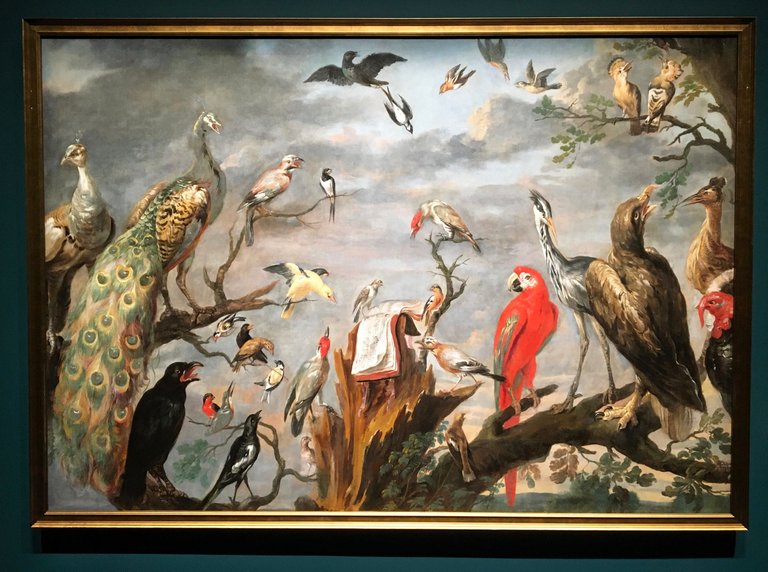
If you have observed well, each time, we find a bird near a score and playing the role of the conductor, leading the other birds in a rather naive but very touching musical representation and remarkably executed from a technical and pictorial point of view !
By the way, we will end this overview of this exhibition with a series of details I was able to take from these different paintings !
That's it !
I hope you have enjoyed this exhaustive tour of the exhibition. I imagine that if you are interested in the subject, you can go and do further research on the Internet ;-) I thank you for your time and for reading.
I wish you a very good day and in advance, a very good weekend, and hope you are doing well. See you soon !
<3
Please note that all text and images in this article are my own, except where indicated by a sourced link.
Bonjour chers curieux et découvreurs d'endroits insolites ! Aujourd'hui, j'aimerai partager avec vous la visite d'une exposition à la Philharmonie de Paris, un lieu dont je vous ai déjà présenté l'architecture et dont vous pourrez retrouver tous les détails ici :)
Mais une fois n'est pas coutume, car voici une courte introduction visuelle du bâtiment au petit matin, dans cette période hivernale...
Voilà quelques précisions d'ordres techniques sur l'architecture de cette sorte de vaisseau spacial que vous trouverez plus détaillées dans l'article concernant uniquement le bâtiment et son extérieur...
La Philharmonie de Paris a été imaginée par l’architecte Jean Nouvel, comme une colline surplombant le parc de La Villette. Avec sa coque grise couverte de centaines de milliers d' « oiseaux » en feuilles d’aluminium, la masse spectaculaire de l’édifice se prête à tous les qualificatifs : OVNI, vaisseau spatial, temple ...
Mais entrons véritablement dans l'exposition. Le titre de celle-ci est "Musicanimale". Vous pourrez retrouver ici ce que le musée dit de son exposition.
Ce que je trouve intéressant, c'est que la source de la musique dans tout le parcours proviens bien des animaux et de l'élément naturel, mais qu'au final, toutes les représentations à propos de celle-ci sont exclusivement d'origine humaine. On a donc un point de vue humain sur le naturel et les sonorités plus ou moins mélodieuses que font les animaux. Je trouve important de préciser cela avant toute chose, mais si nous, humains, sommes adaptés à ne prêter qu'une presque exclusive attention à nos représentations plutôt qu'à ce qui pré-existe...
Une dernière précision avant de commencer véritablement le parcours de l'exposition. Je n'ai pas inclut systématiquement les titres et informations pour chaque oeuvre. Ce n'est pas par fainéantise, loin de là, vous allez voir, il y a des dizaines d'oeuvres ci-dessous et cela aurait alourdit conséquemment mon article. Sachez cependant que je tiens toutes ces informations a votre disposition si vous souhaitez plus de précisions !
Après ces nécessaires informations selon moi, commençons notre déambulation !
Ici, vous aviez l'oeuvre d'une artiste américaine, un cerf en plein brame sur un tas de journaux, allégorie de notre époque et de sa relation avec les nouvelles de la presse.
Vient ensuite l'oeuvre de l'artiste Erik Nussbicker, une série d'instruments fait à partir du squelette d'un cerf accidenté. Je pense que c'est peut-être mon oeuvre préférée vue la manière primitive dont les instruments sont réalisés seulement à partir de matières et de méthodes naturelles.
Ici, on retrouve une collection de coucous suisses, c'est horloges traditionnelles. Certains sont très anciens lorsque d'autres sont résolument contemporains comme vous pourrez vous en apercevoir ci-dessous...
On continue avec une atmosphère suisse des alpages avec ce tableau assez naïf dans sa représentation d'une transhumance vers de plus verts pâturages.
Forcément, ce sont les cloches et les 'sonailles' qui nous intéressent ici. Certaines sont vraiment énormes et doivent peser plusieurs kilos. Leurs sonorités aussi doivent être très variables également.
Dans une pièce de projection, on peut découvrir le ballet de ces magnifiques animaux marins que sont les baleines. Au niveau du son, on retrouve des artistes musicaux contemporains comme John Cage, Alice in Chains, Iannis Xenakis et George Crumb. Tous ayant fait des morceaux avec ou s'inspirant des chants des baleines.
Dans cette vitrine, on retrouve des exemples de zoomorphisme. Des instruments de musique ayant comme aspects celui d'animaux comme pour ce hochet d'Amérique Centrale en forme de corbeau. Vous retrouverez les références de chacun des instruments que j'ai mis à la fin de cette série...
Les références sont ici, n'hésitez pas à m'en demander davantage si vous êtes intéressés par un instruments en particulier !
Dans la série des animaux qui sont représentés en jouant de la musique, on retrouve évidemment nos plus proches parents du règne animal qui sont bien-sûr les singes !
Ces trois sculptures sont respectivement grecque, japonaise et de l'antiquité égyptienne. Pour celles en bronze et en terre cuite, nous sommes avant JC, quand pour celle en matériaux divers, nous sommes au siècle dernier.
Ici, c'est la "Veste du Piégeur" , une oeuvre de Daniel Spoerri. C'est une veste recouverte de sérigraphies d'oiseaux de toutes les couleurs, ornée sur toute sa surface d'appeaux, ces petits sifflets dont les sons imitent ceux des oiseaux. Cette tradition d'accrocher sur les vêtements des éléments spécifiques à une activité est une tradition typiquement africaine et très observable dans les traditions animistes en général.
Ci-dessus, vous aurez peut-être reconnus quelques uns de ces appeaux, pour le coup assez anciens et pour lesquels je tiens les références à votre disposition :)
Une représentation de la déesse égyptienne Bastet en bronze, probablement en trin de jouer du sistre, l'instrument que l'on voit à côté s'elle.
Mais venons en à la dernière salle de l'exposition, celle des oiseaux !
On retrouve cette viole datant d'environ deux siècles avec une création en plumes de paons qui vient orner le mur dans son dos. J'aime particulièrement les ombres portées de ce très bel instrument de musique !
Sur tous les autres murs, encadrant cet instrument à cordes, on retrouve des oeuvres inspirées ou du peintre Frans Snyders ou Snijders, un artiste baroque néerlandais du XVIème siècle, particulièrement connu pour ces représentations d'animaux et ici plus précisément, de concerts d'oiseaux.

Si vous avez bien observé, à chaque fois, on retrouve un oiseau près d'une partition et jouant le rôle du chef d'orchestre, menant les autres oiseaux dans une représentation musicale assez naïve mais très touchante et remarquablement exécutée d'un point de vue technique et pictural !
D'ailleurs nous terminerons cet aperçu de cette exposition par une série de détails que j'ai pu prendre de ces différents tableaux !
Voilà, c'est terminé !
J'espère que vous aurez apprécié cette visite exhaustive de cette exposition. J'imagine que si le sujet vous intéresse, vous pouvez aller faire de plus amples recherches sur Internet ;-) Je vous remercie pour le temps de votre visite ainsi que pour votre lecture.
Je vous souhaite une excellente journée et par avance, un très bon weekend, en espérant aussi que vous allez pour le mieux. À très bientôt !
<3
Merci de prendre en compte que tous les textes et images dans cet article sont les miens, sauf lorsque c'est indiqué par un lien sourcé.
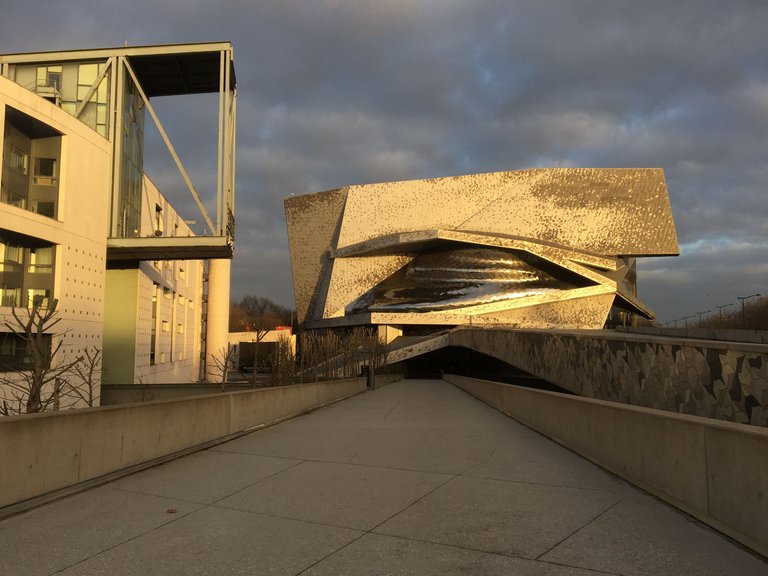
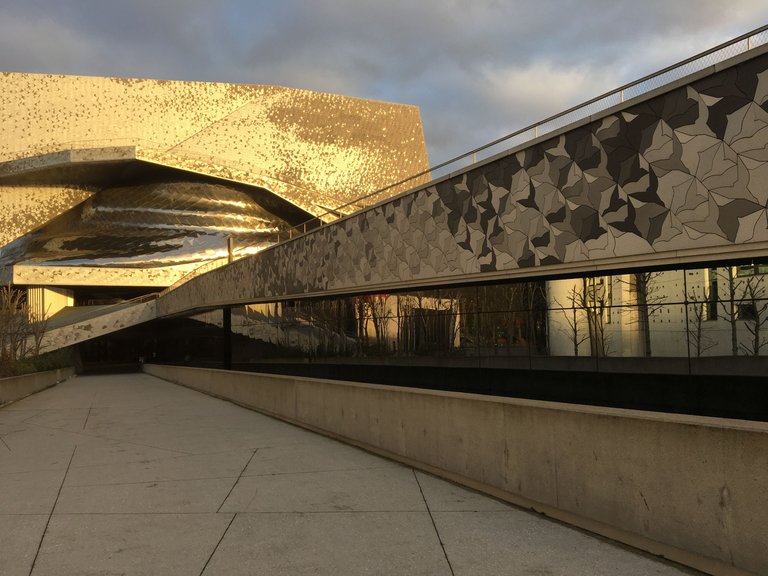
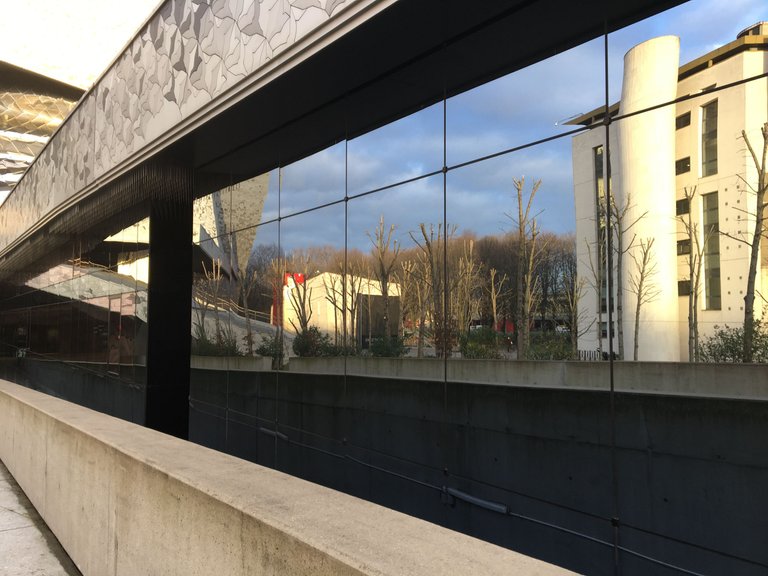
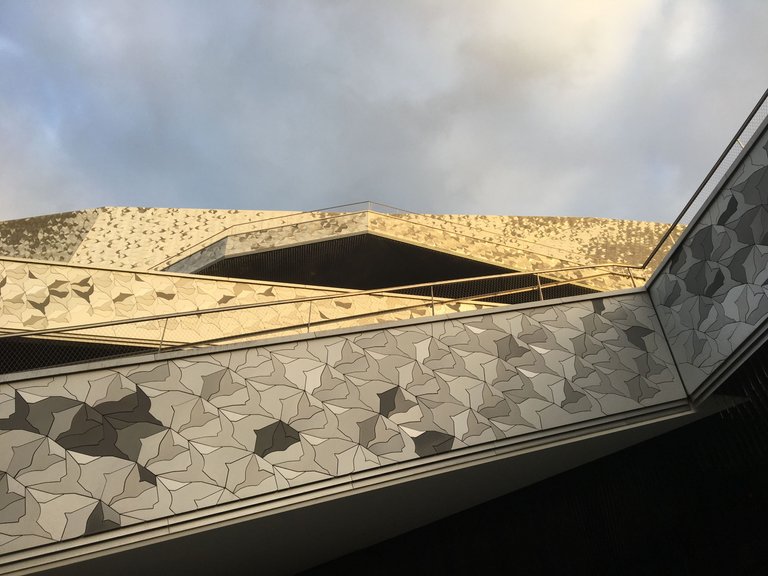
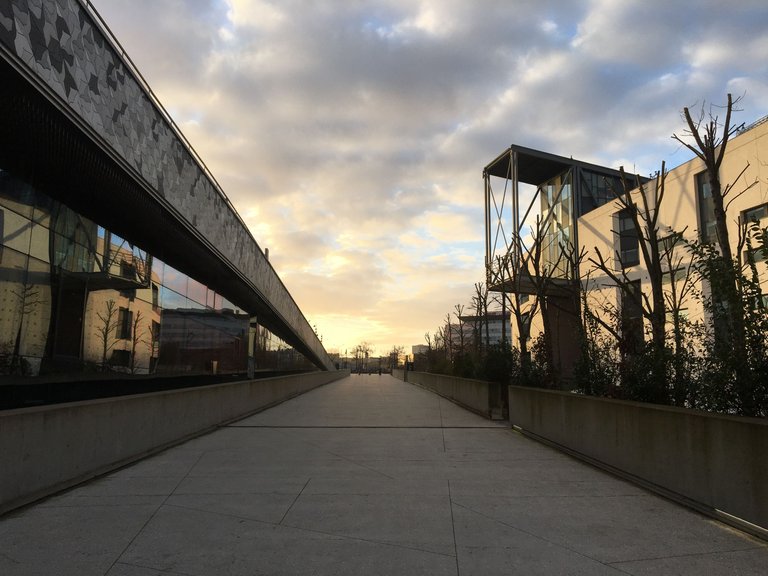
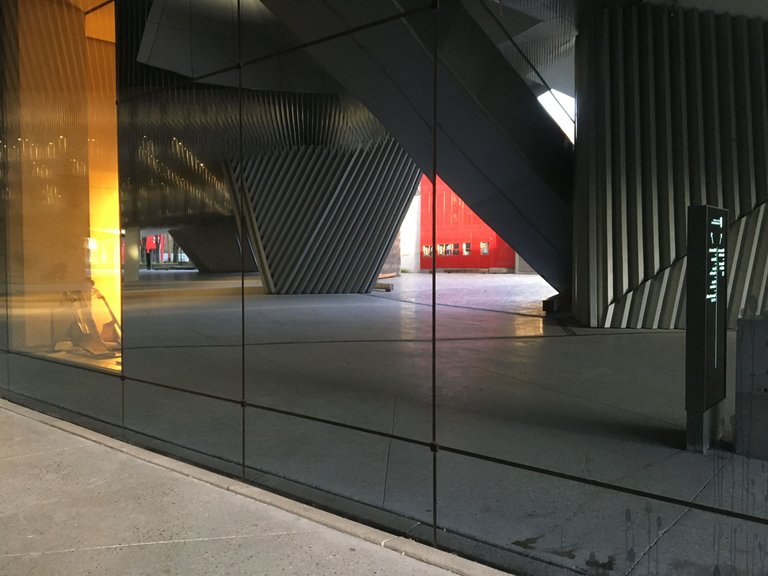
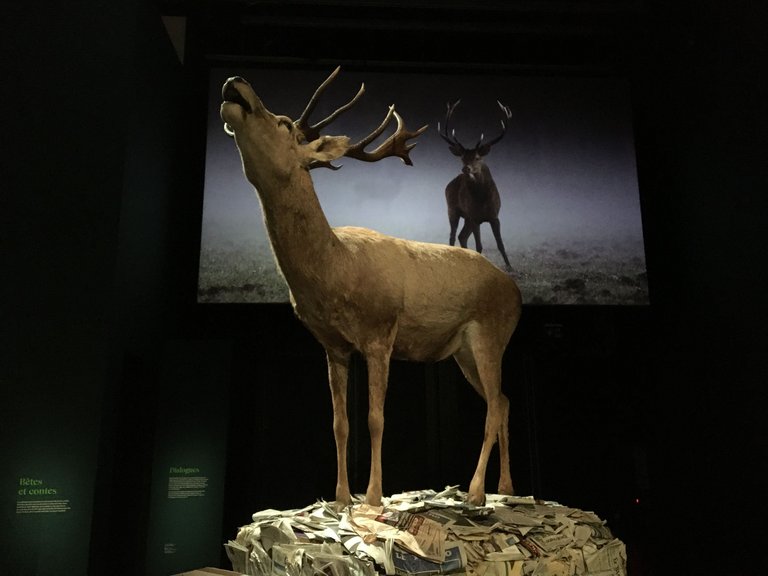
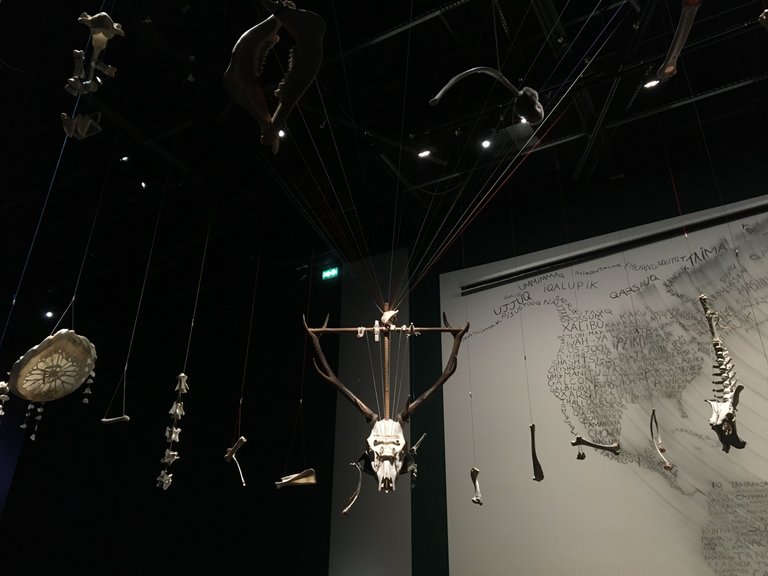
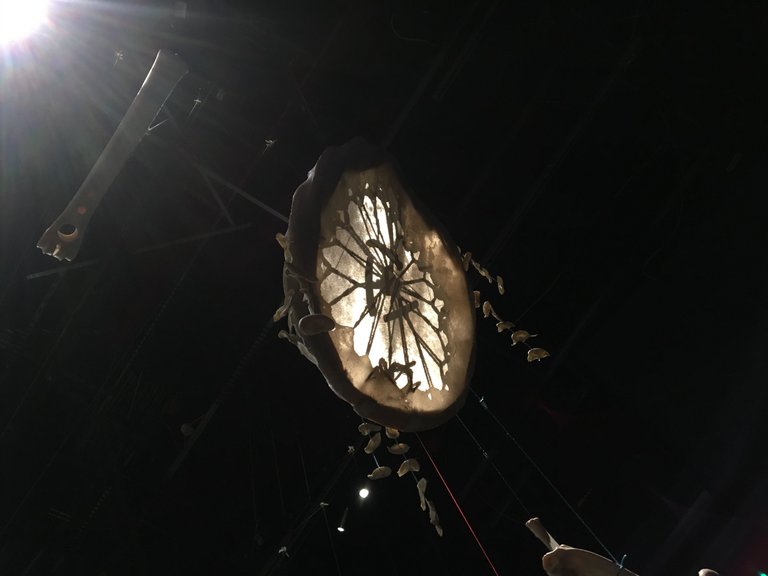
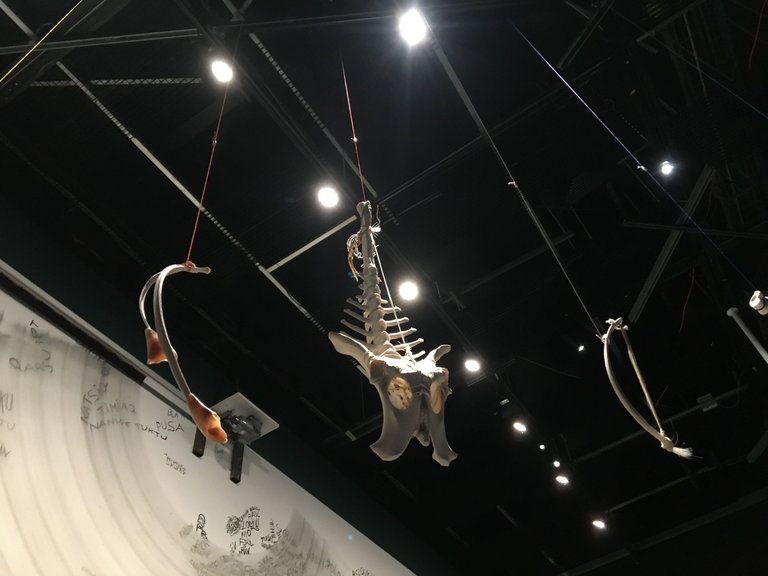
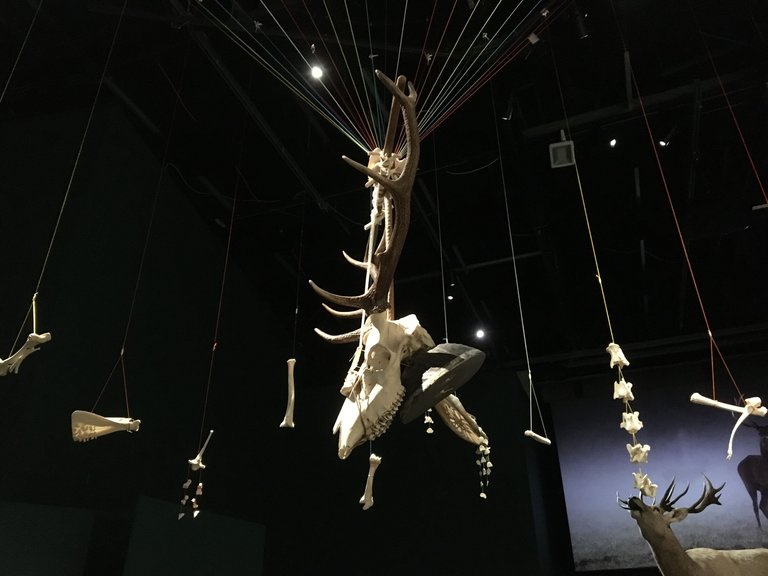
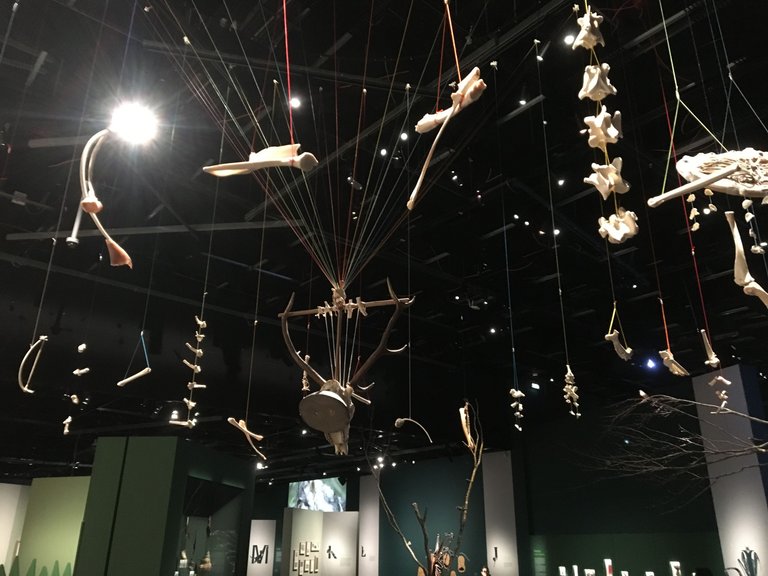
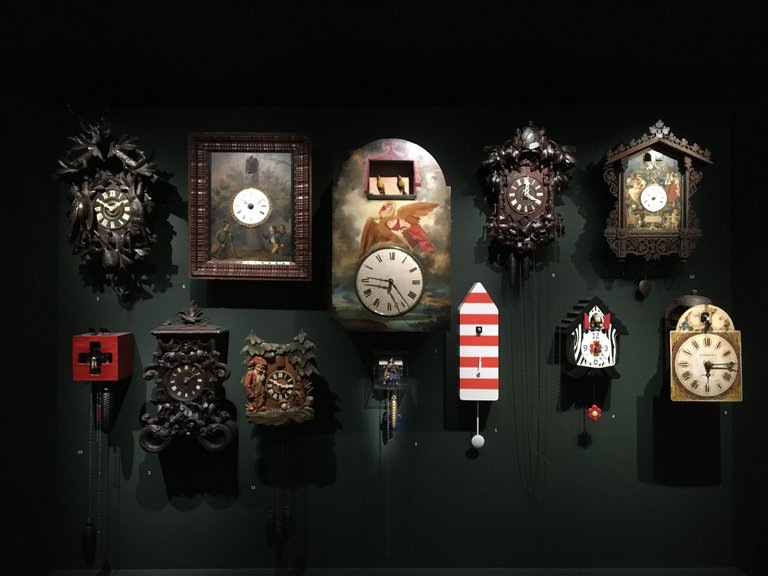
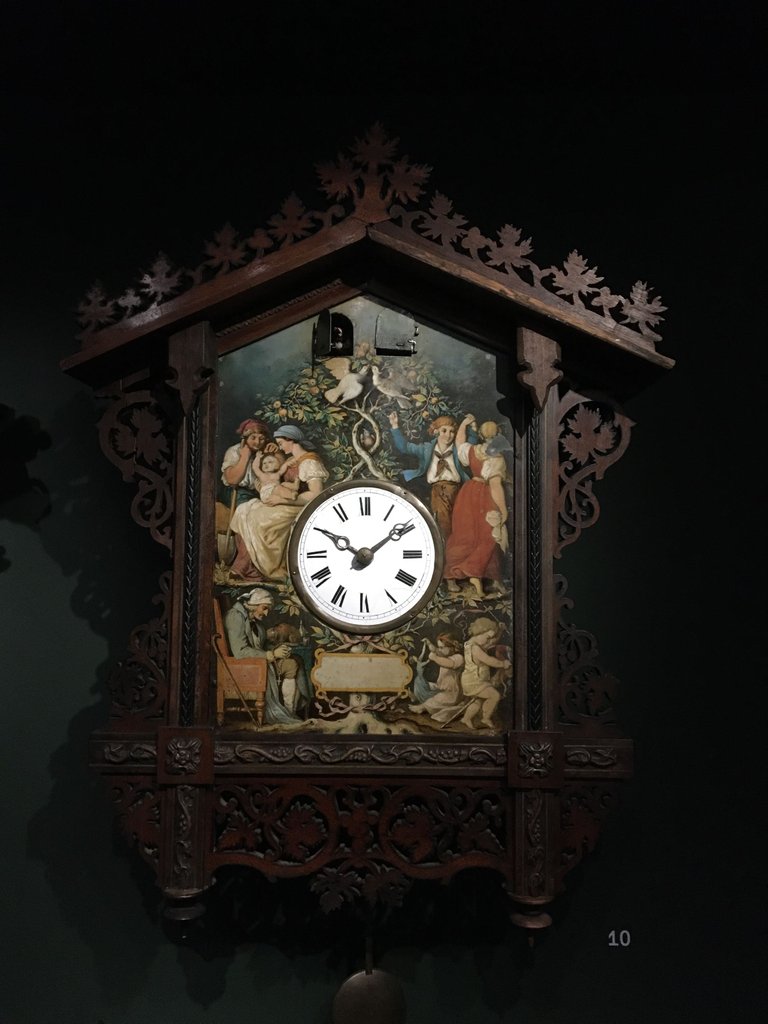

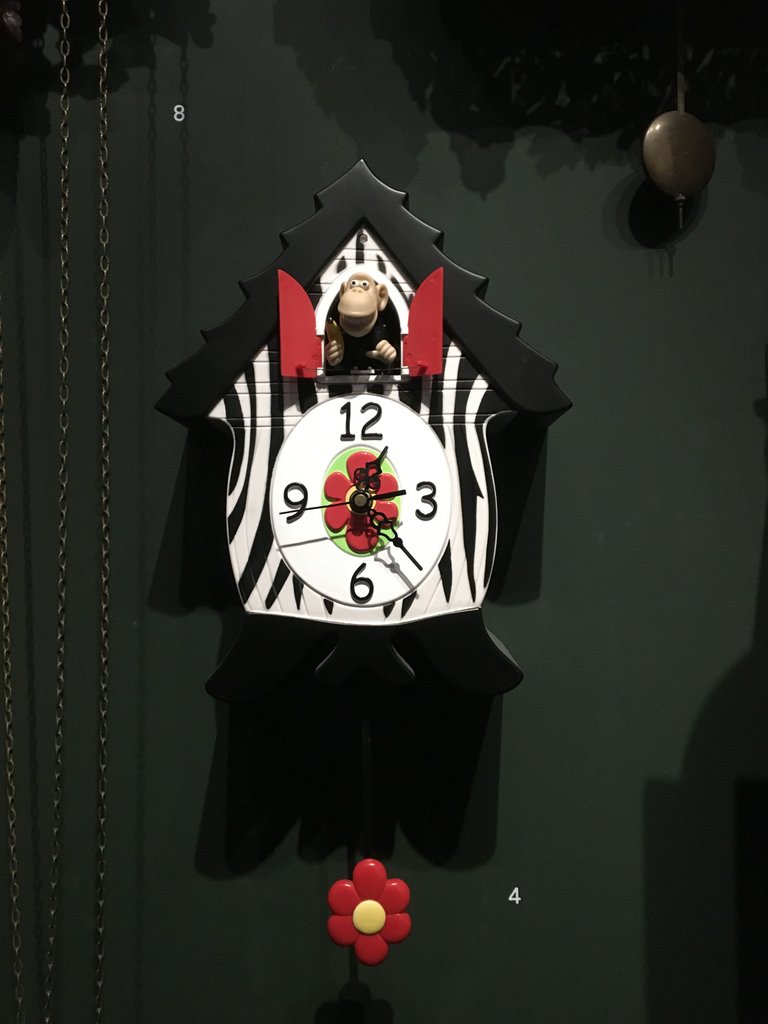
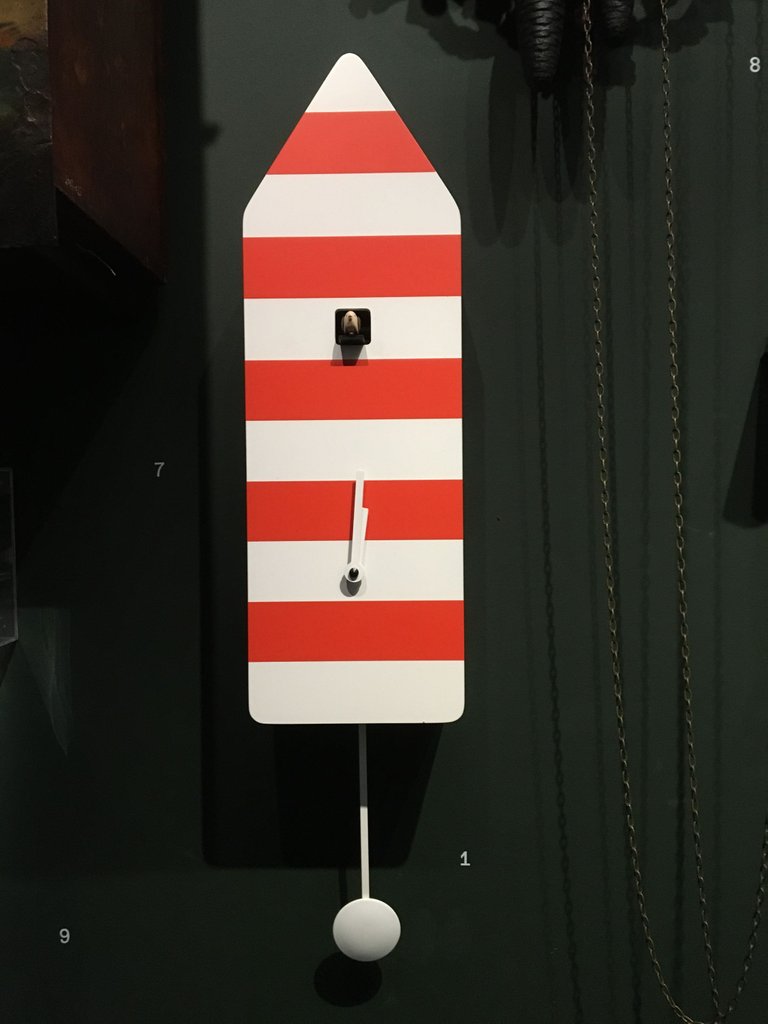

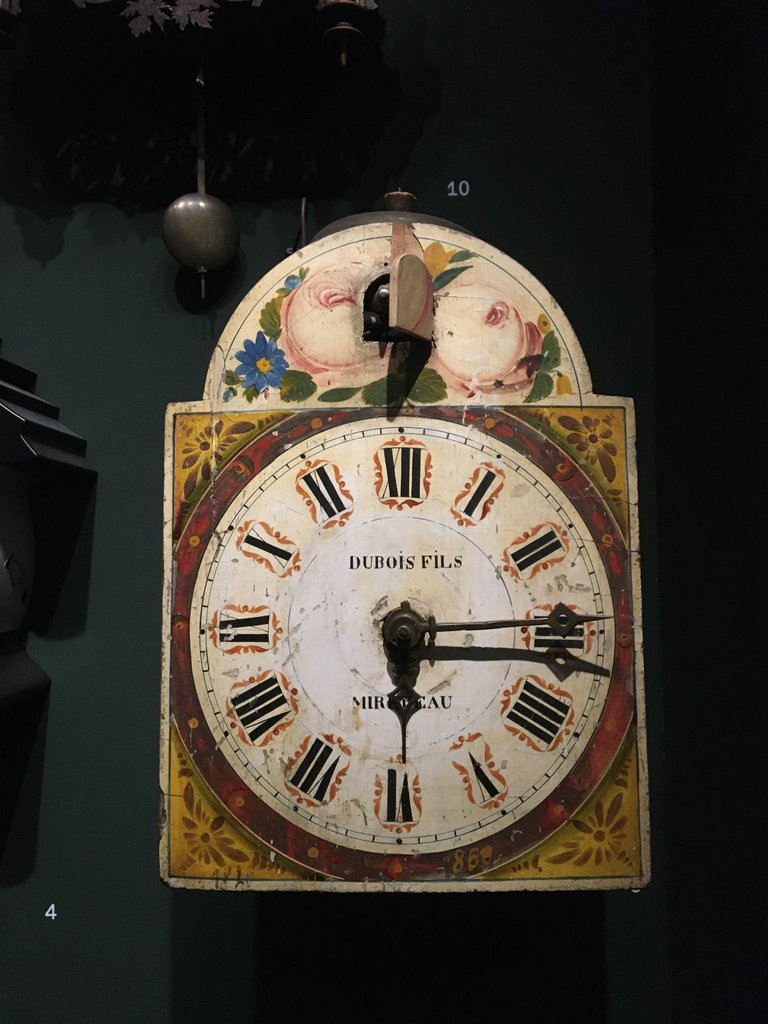
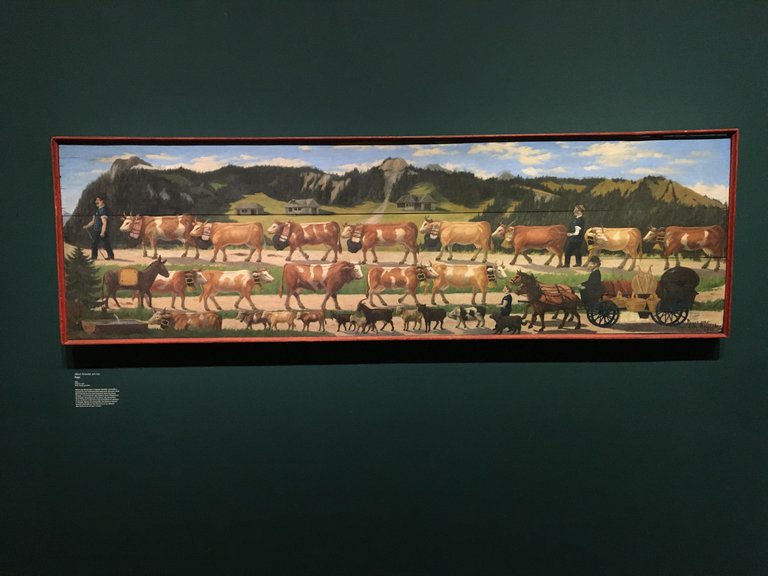
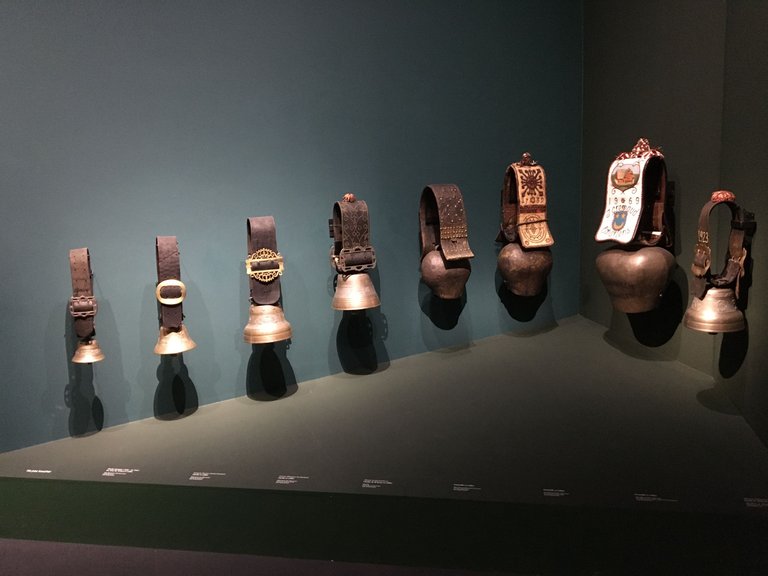
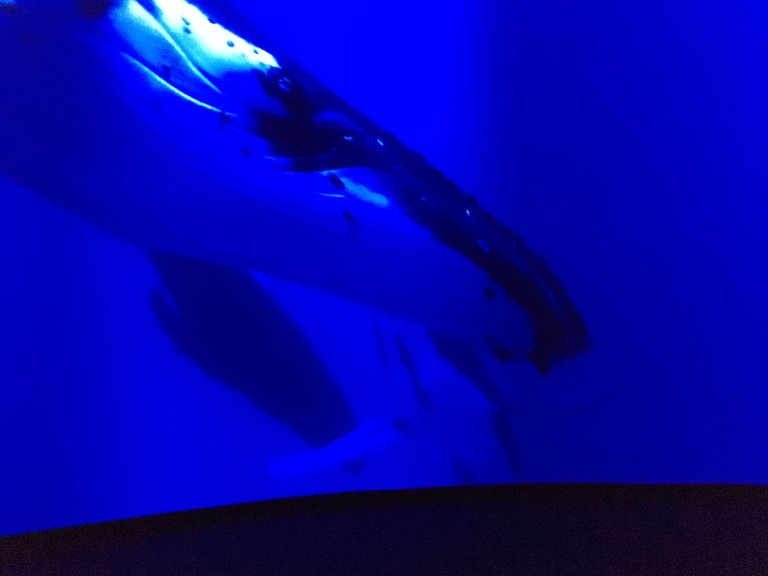
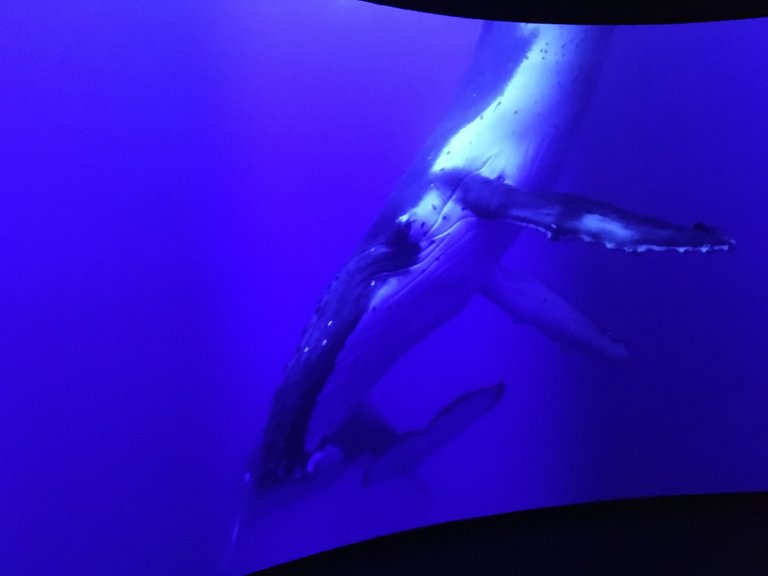
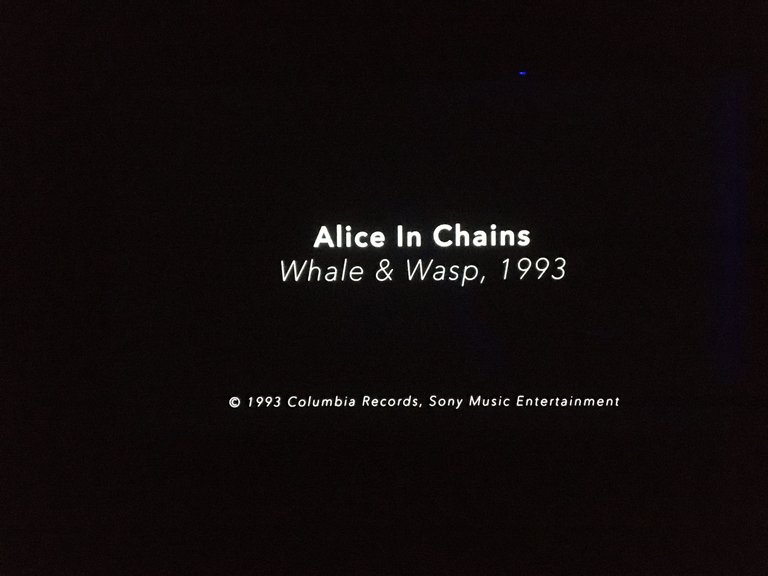

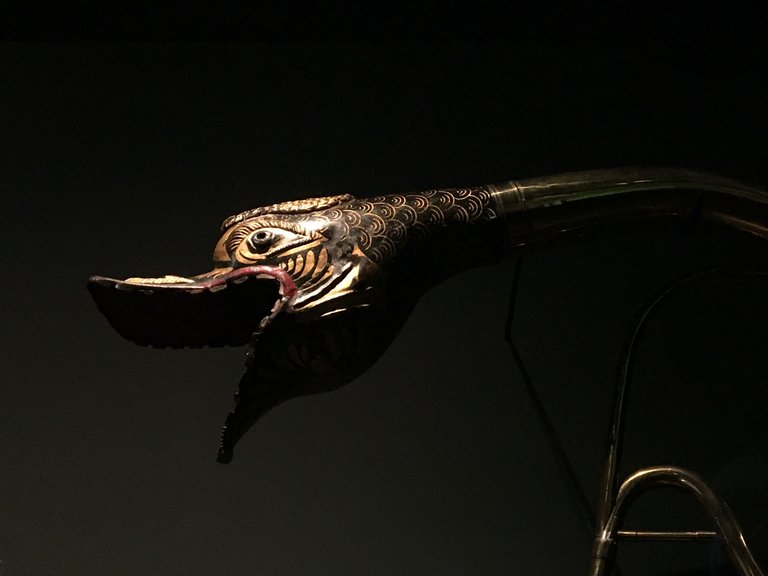
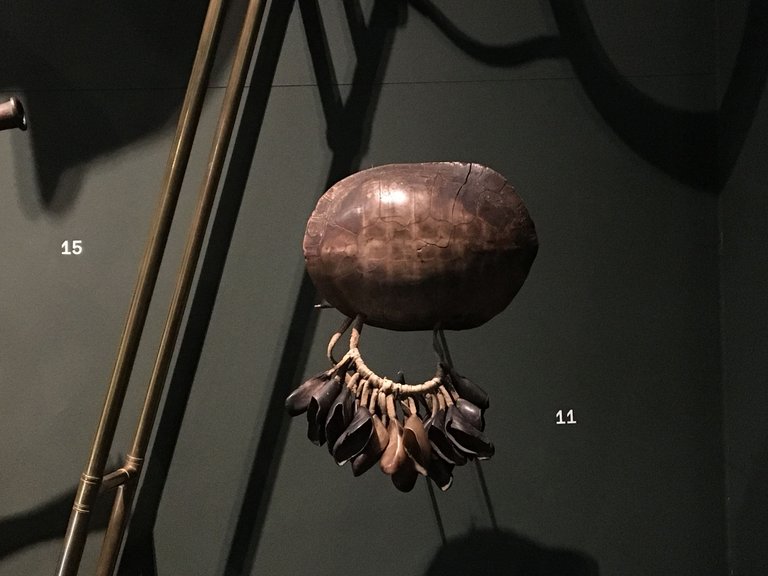
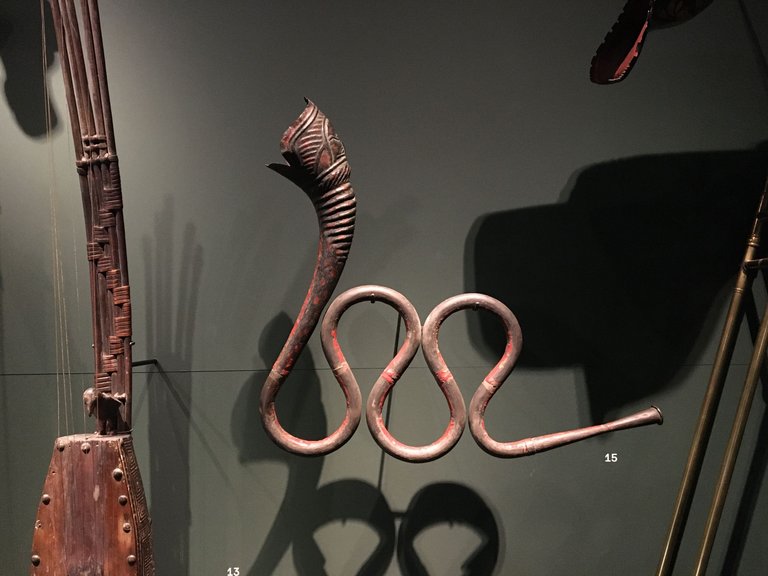

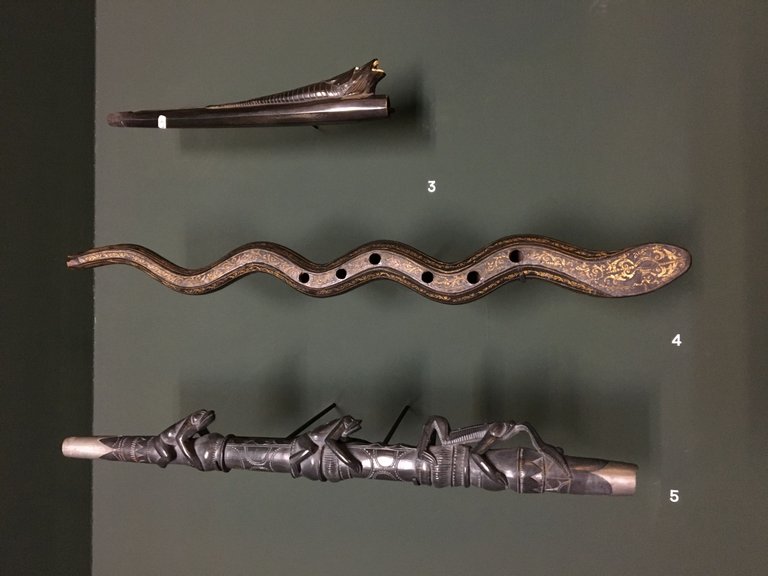
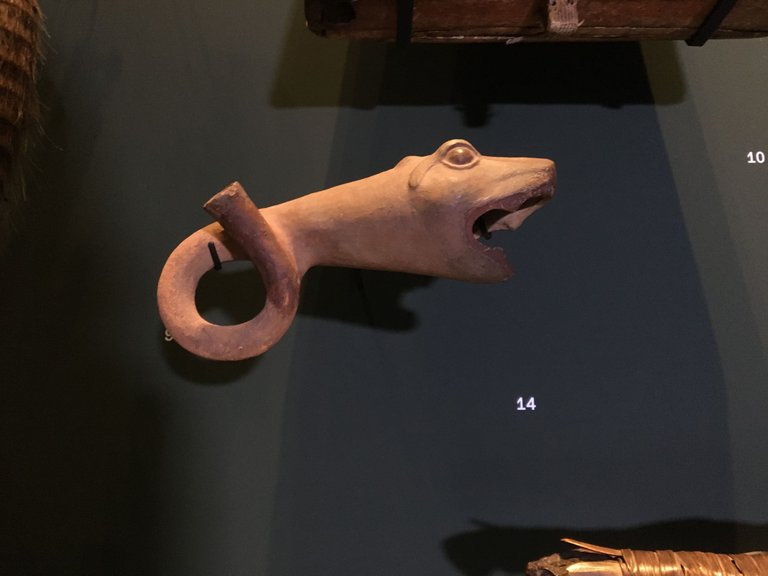
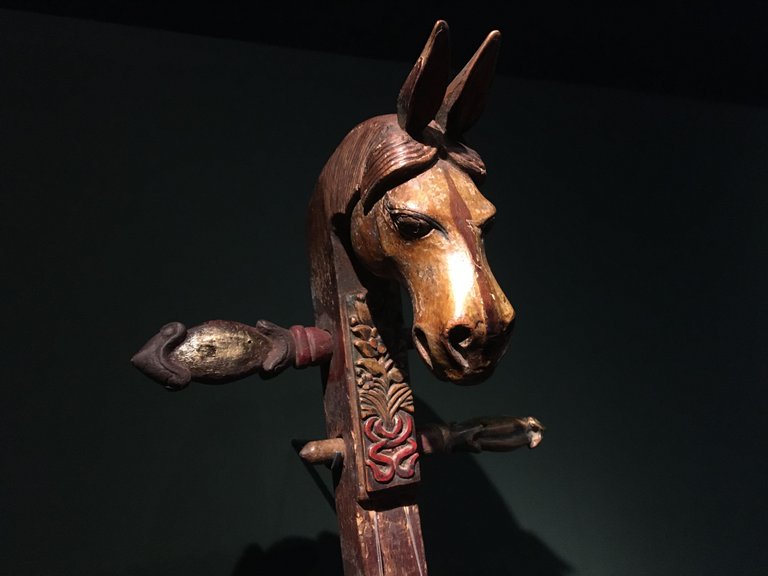
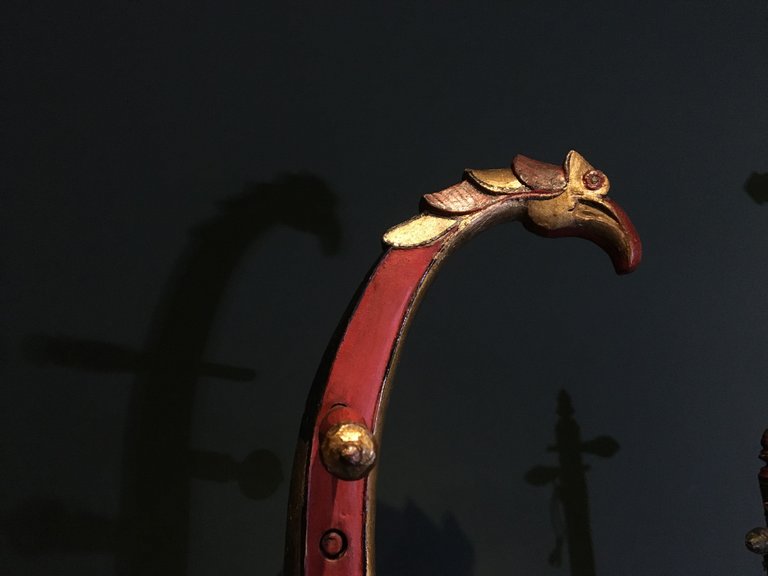
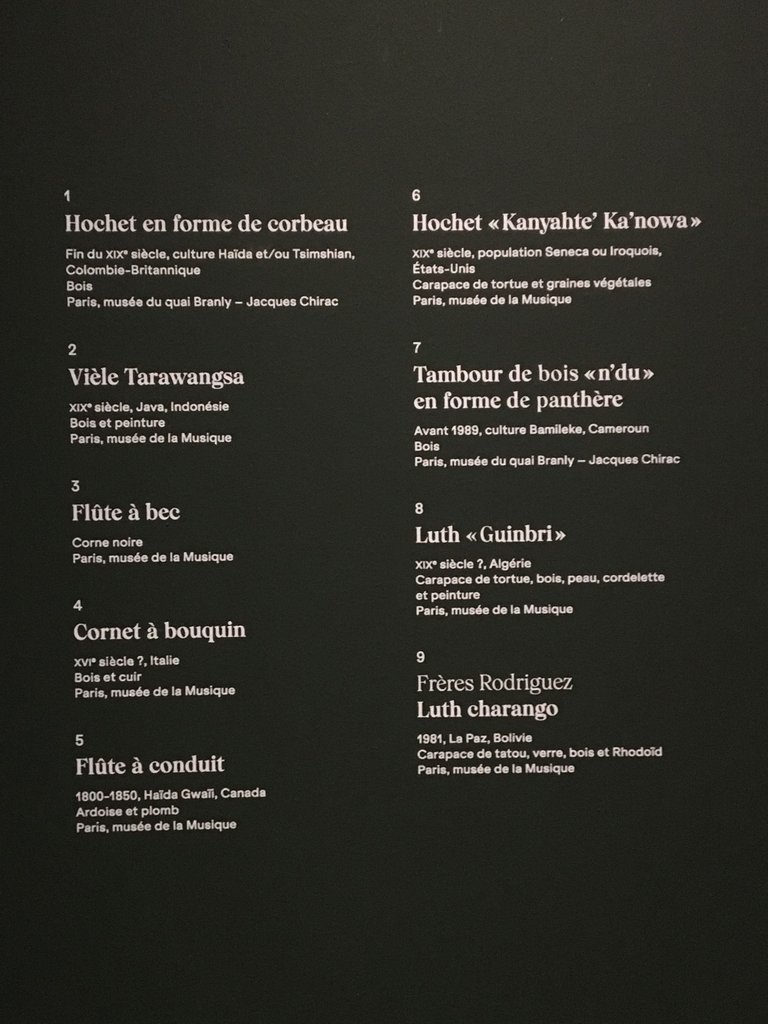
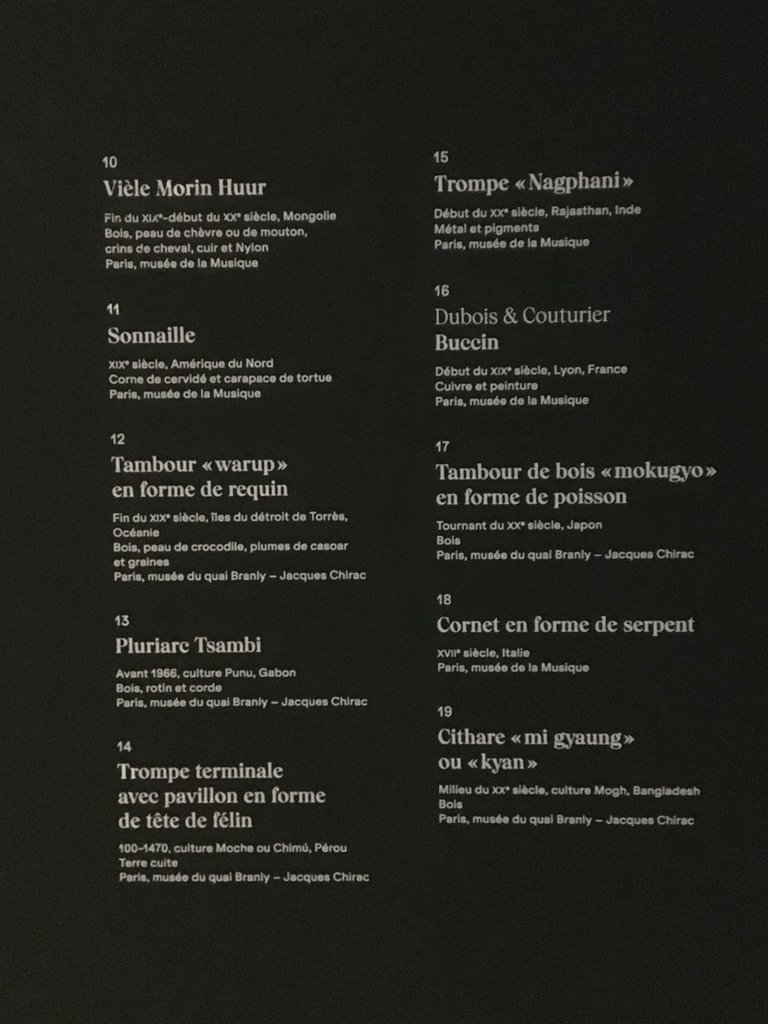
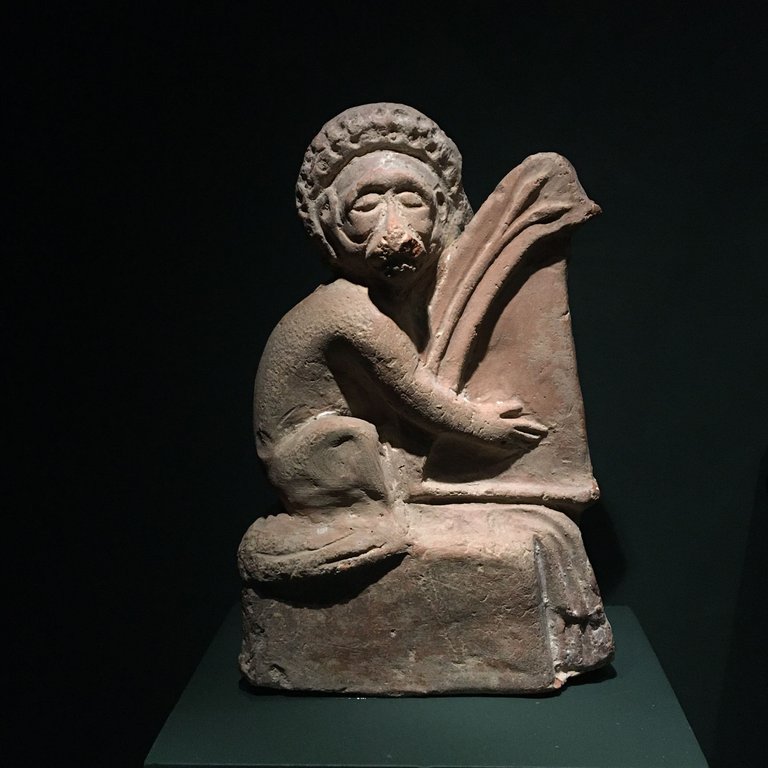
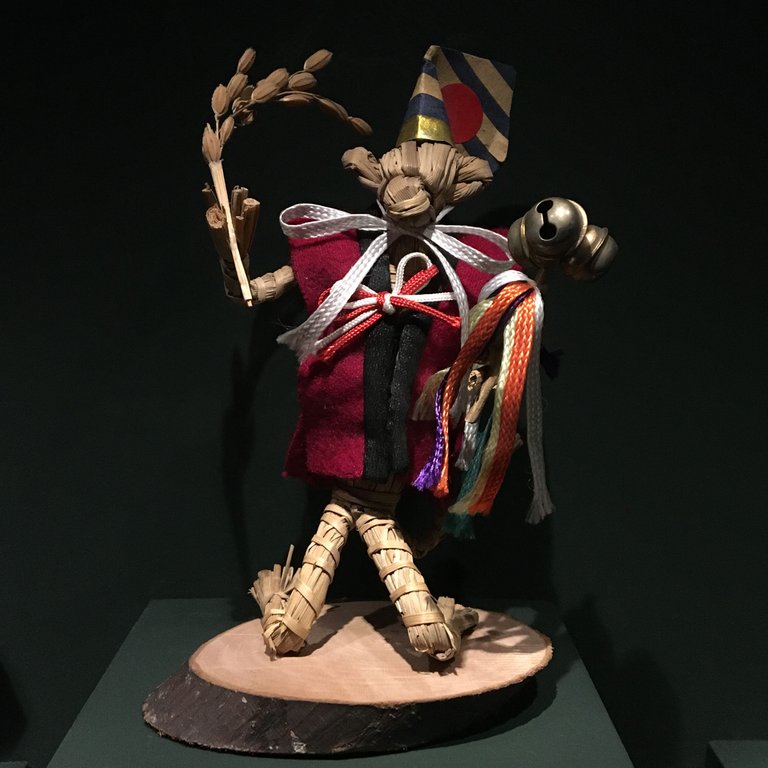
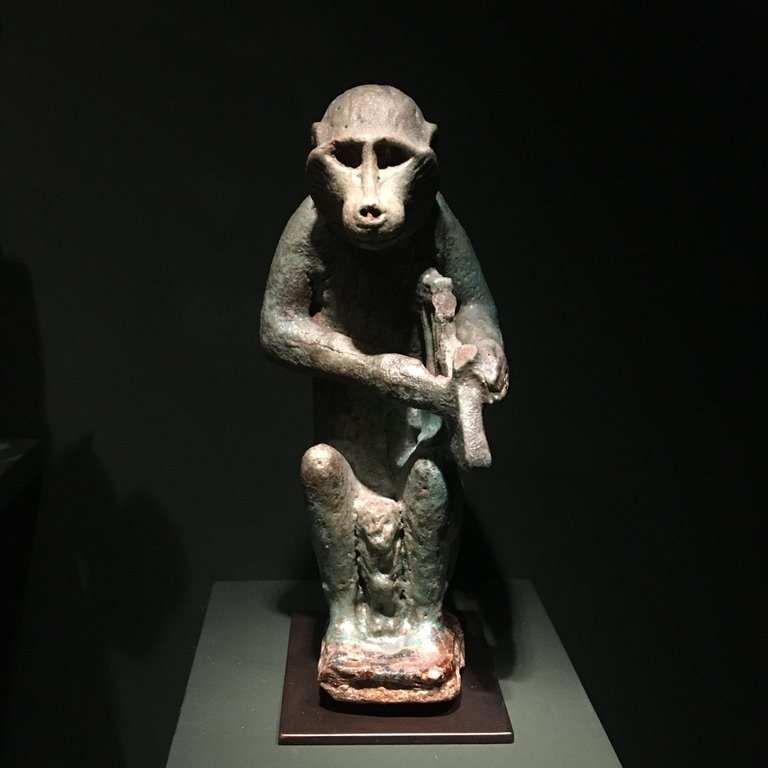
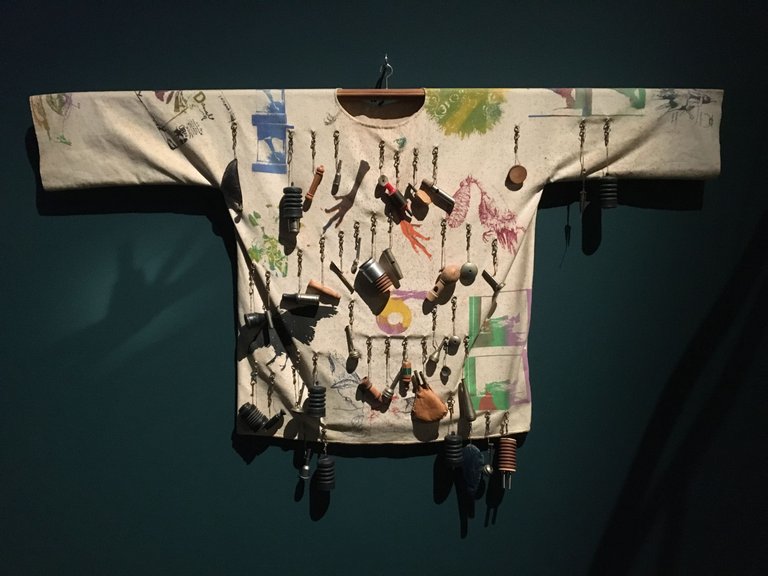
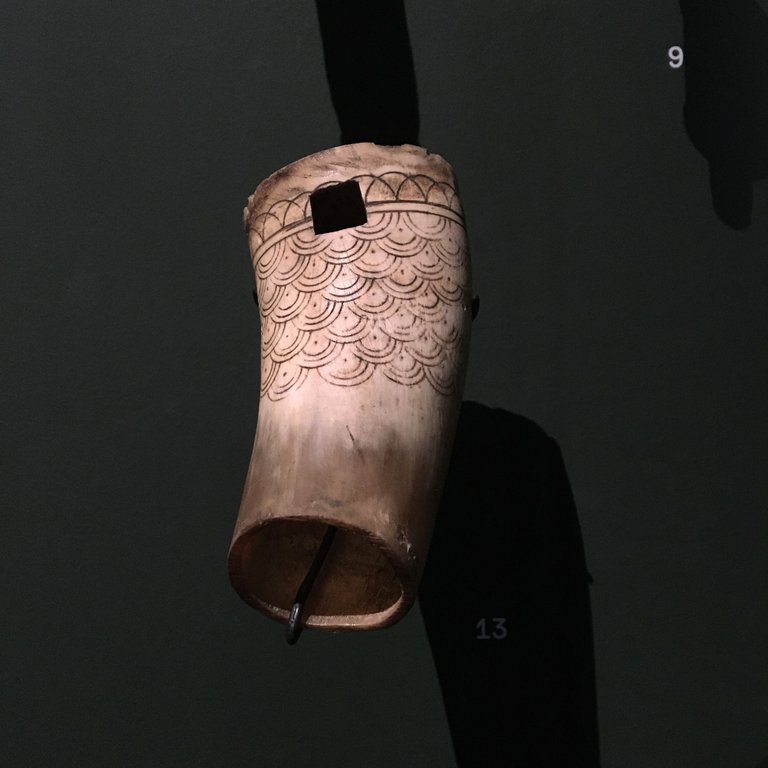
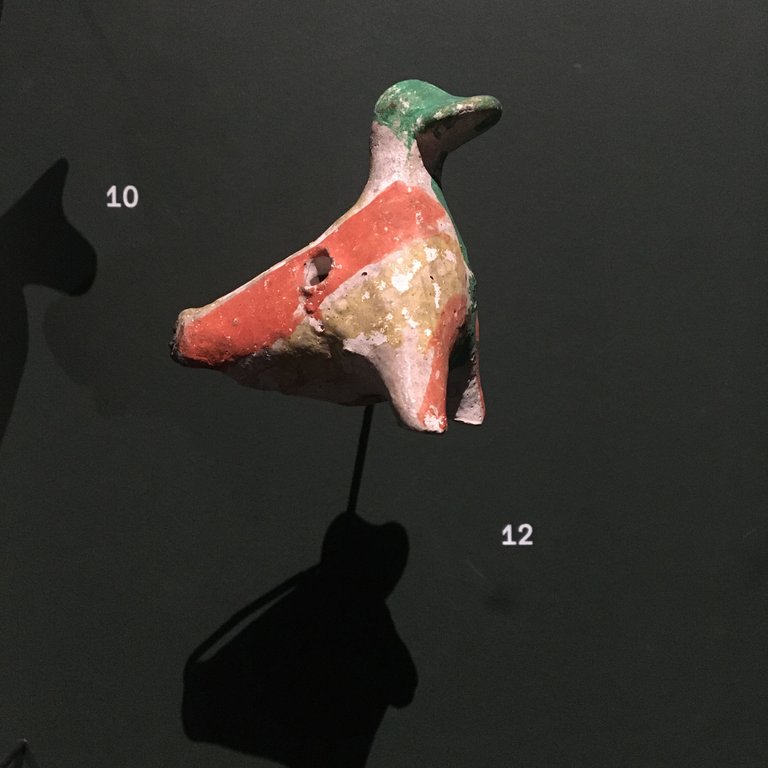
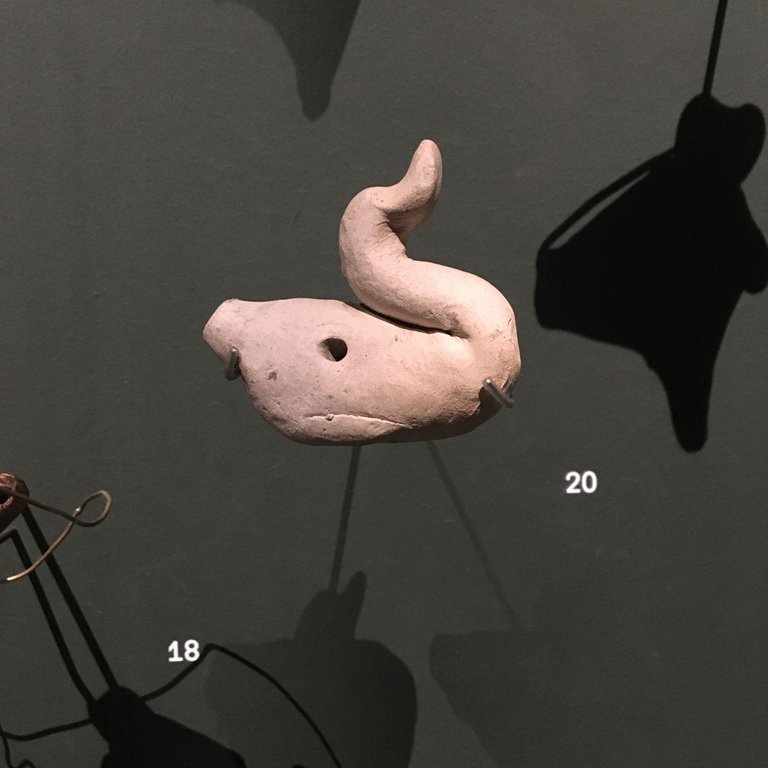
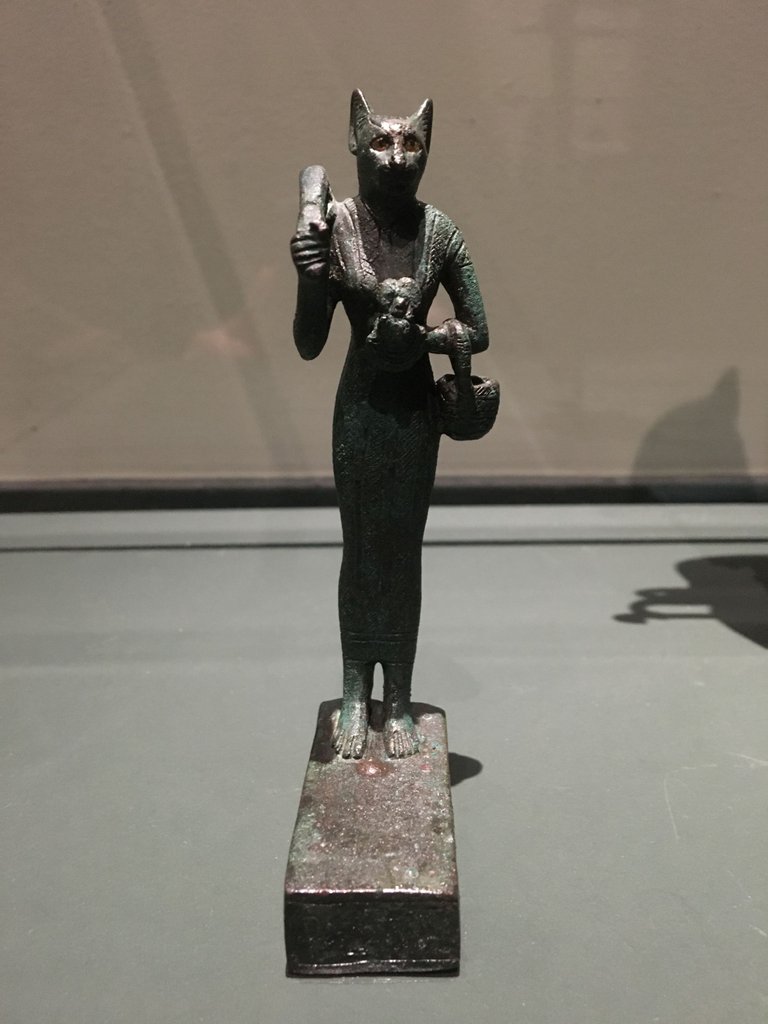
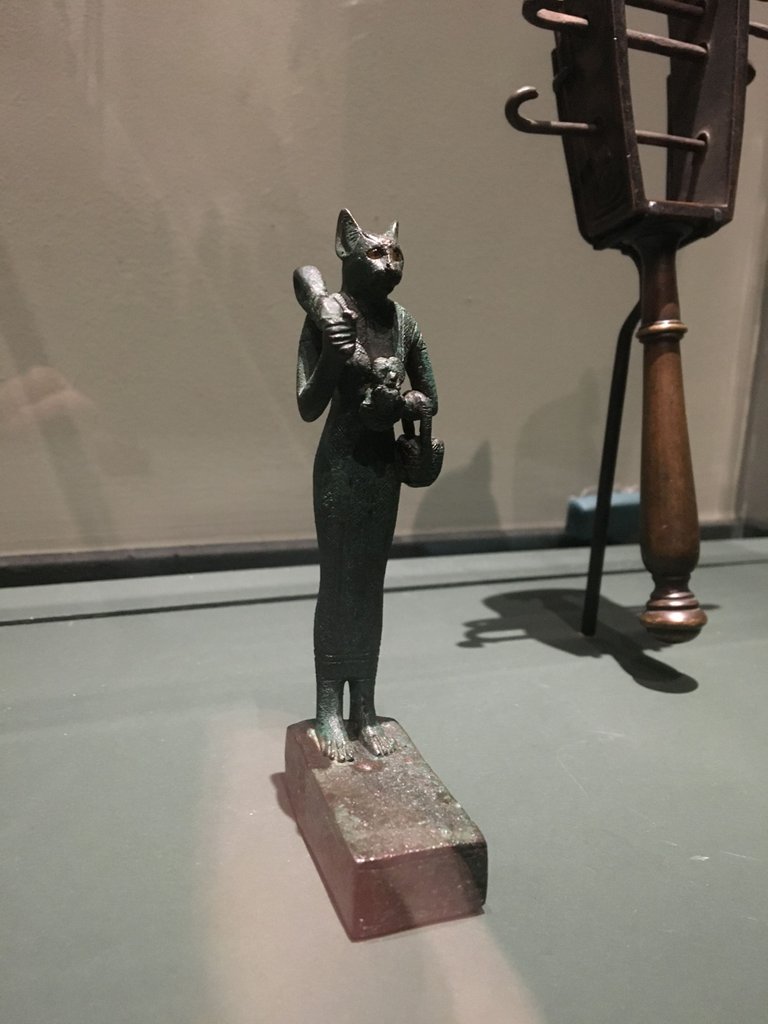
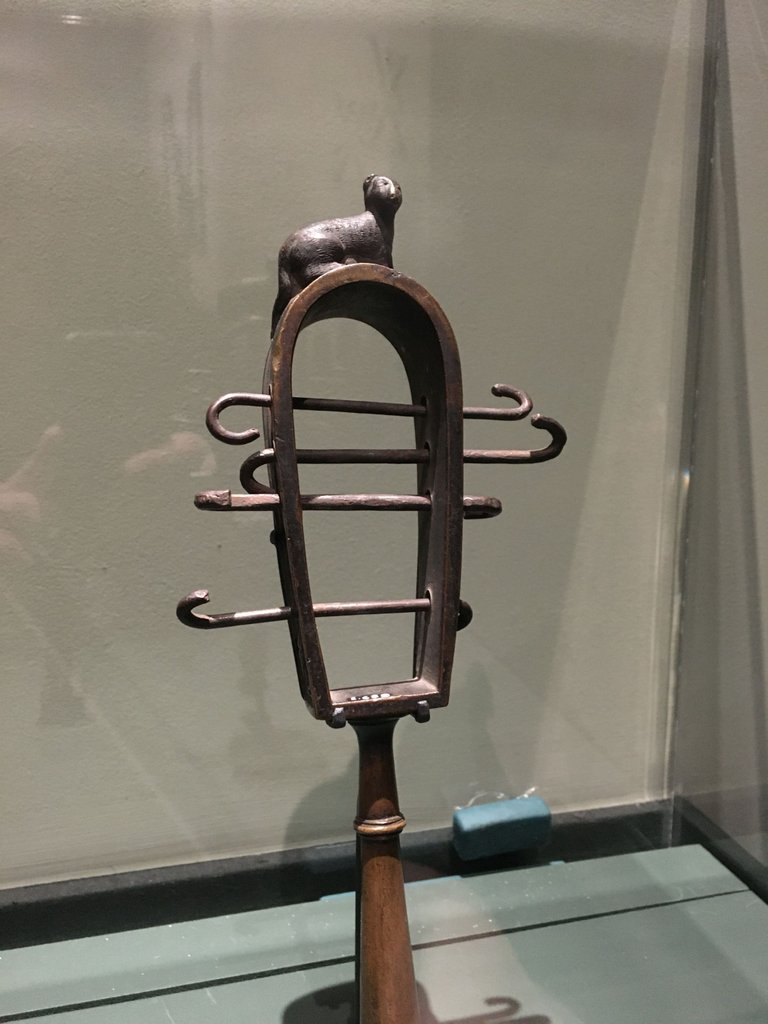
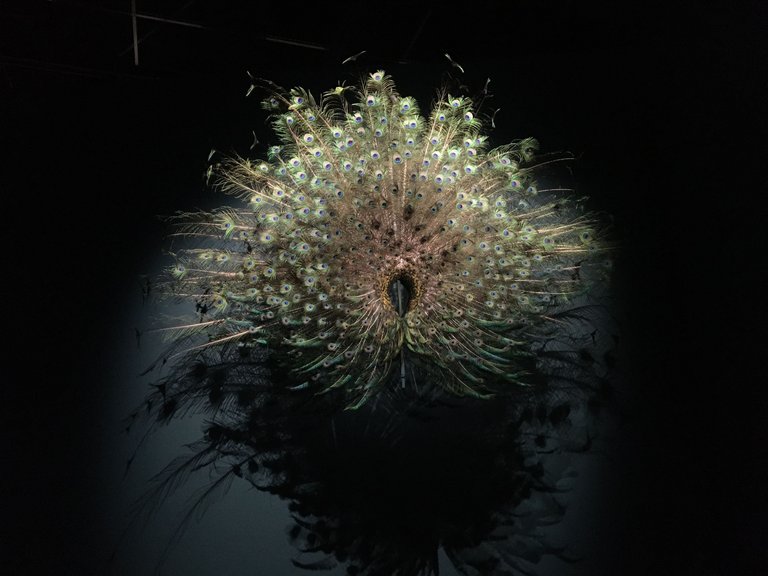
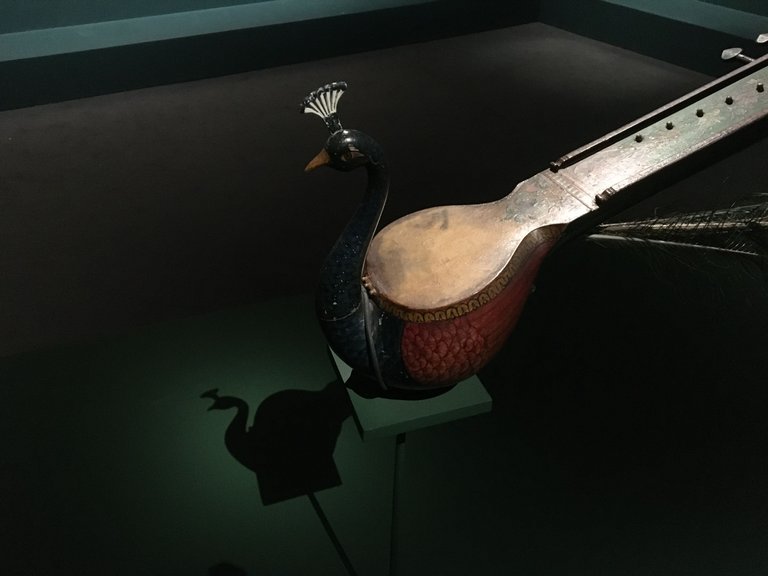
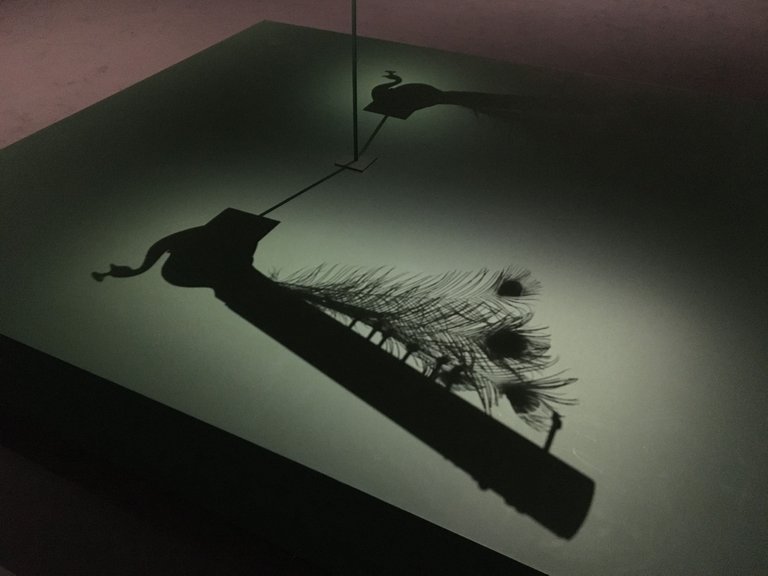
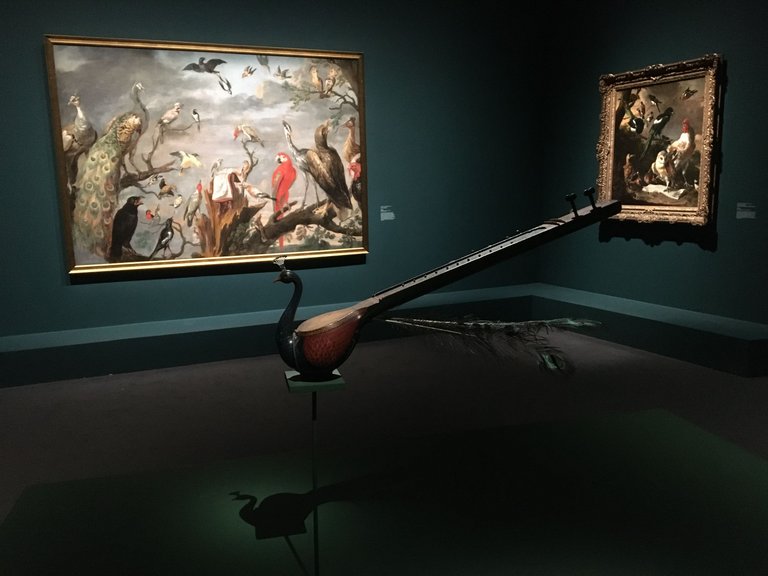
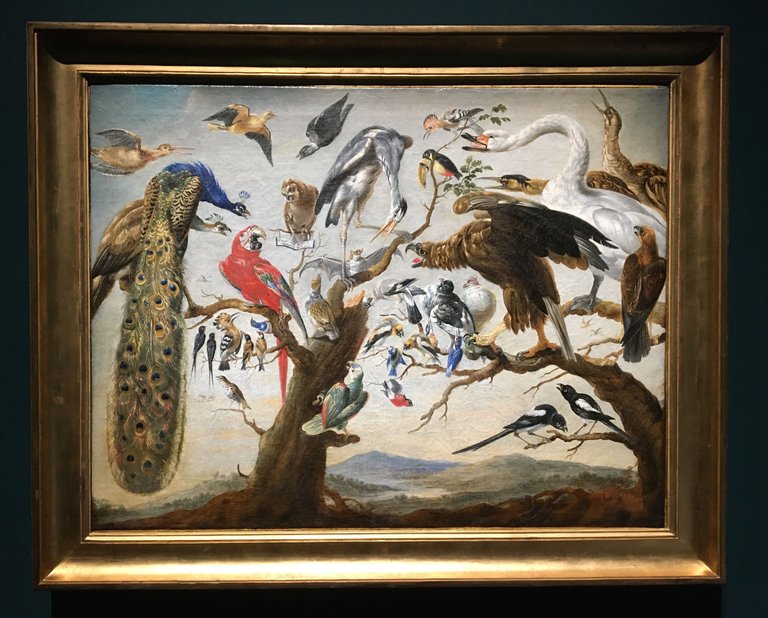
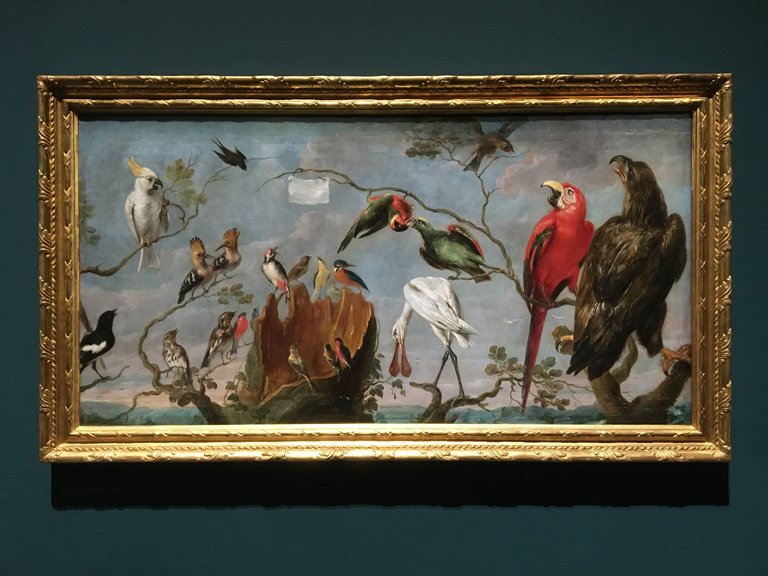
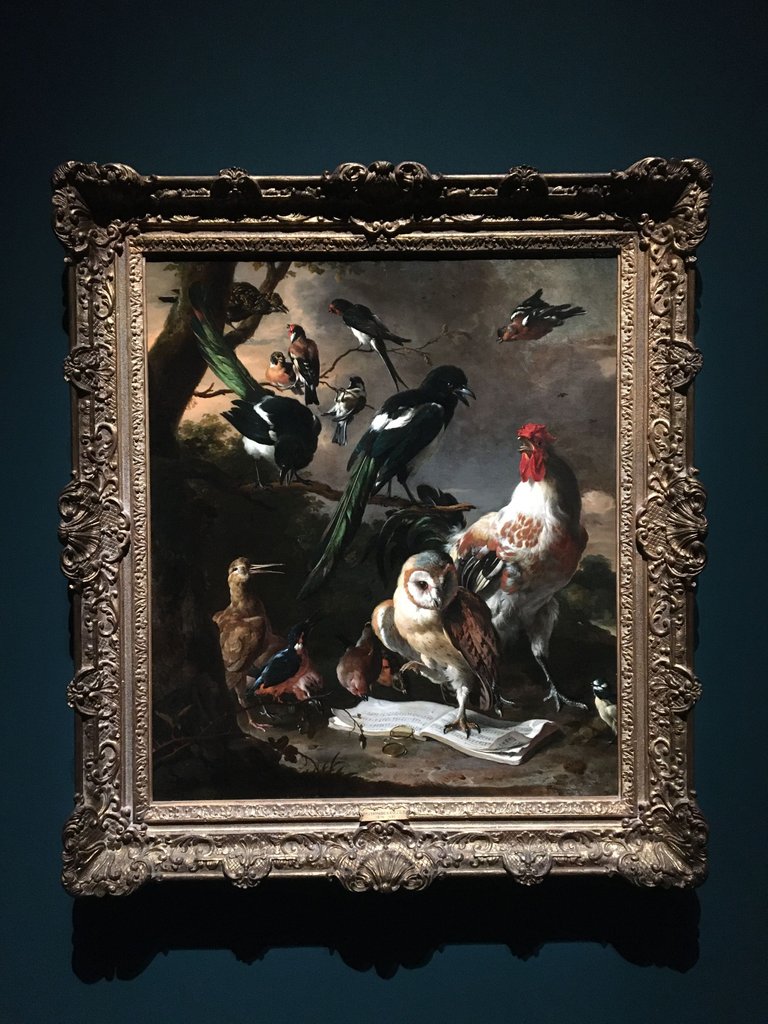
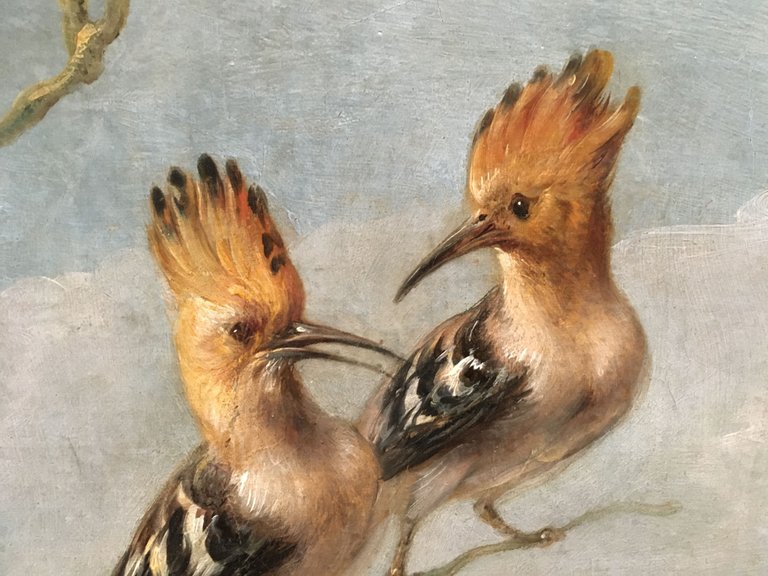
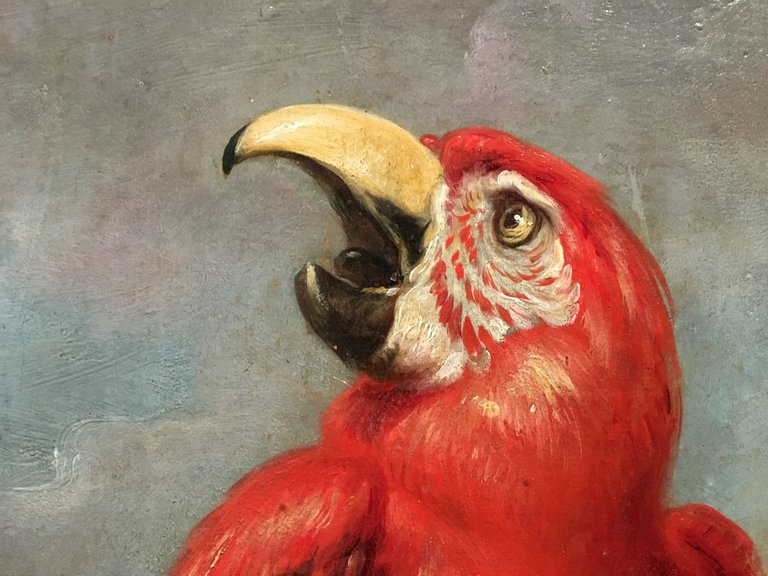
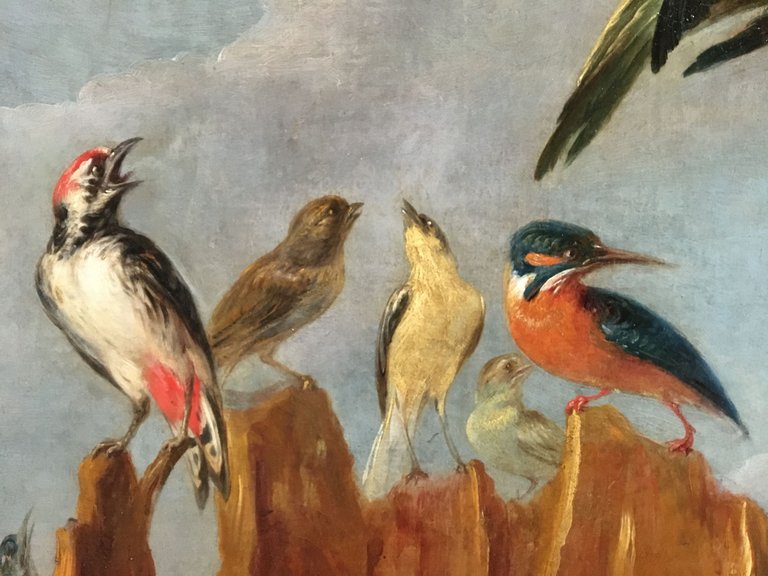
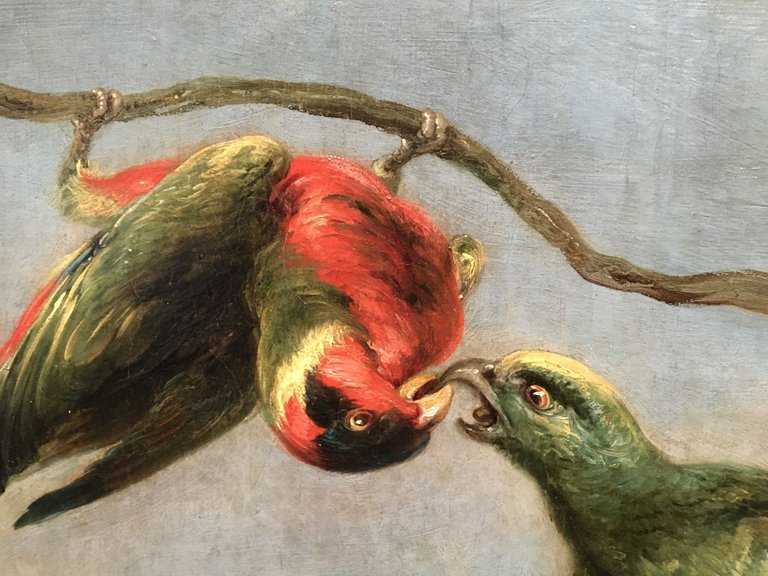
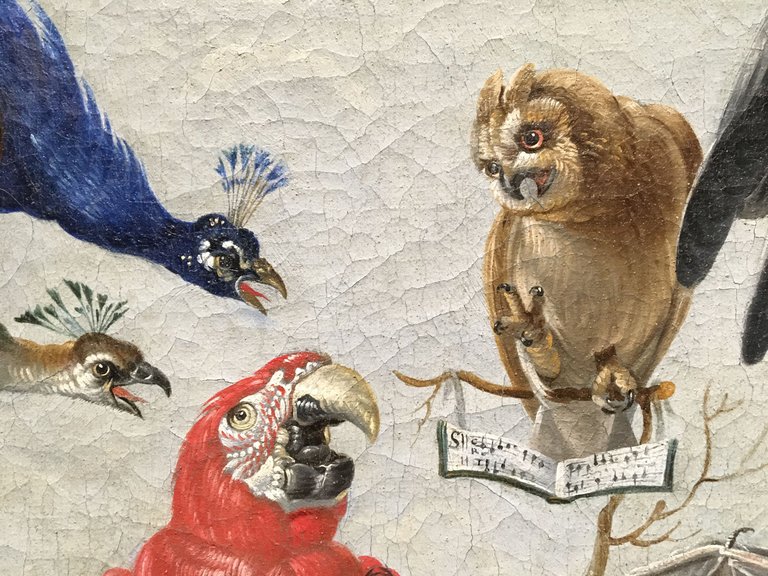
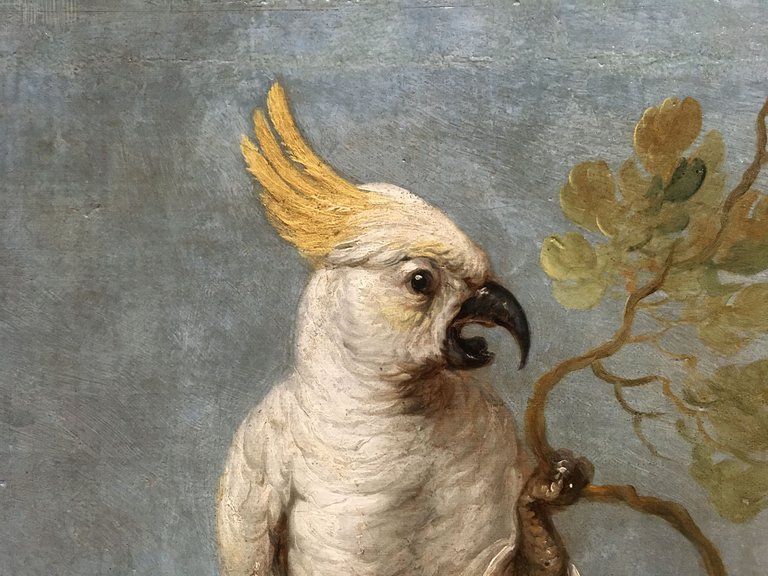
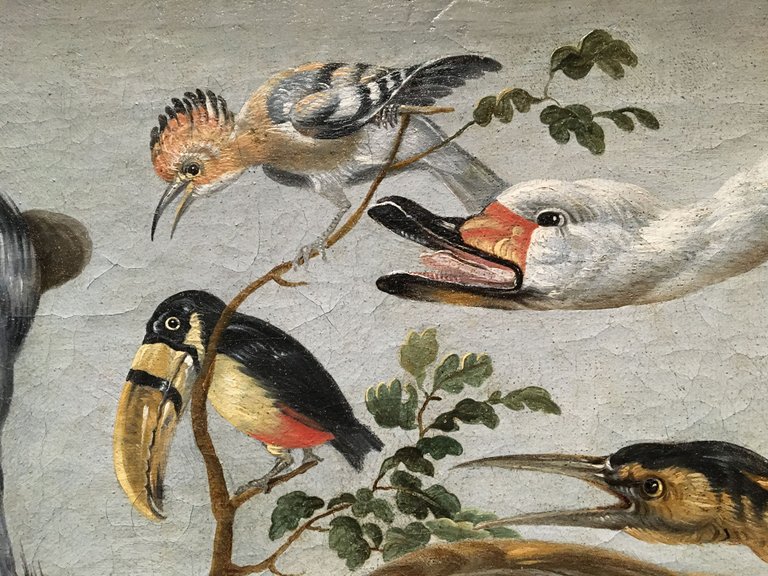
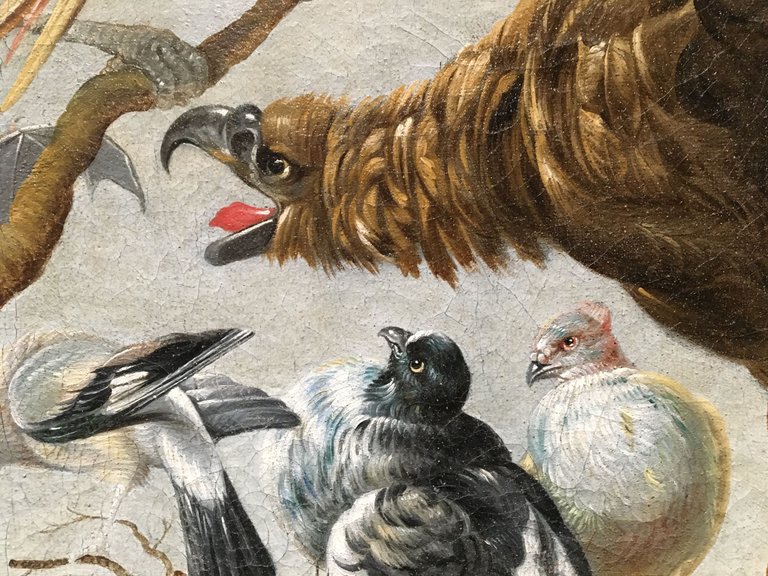
Congratulations, your post has been added to Pinmapple! 🎉🥳🍍
Did you know you have your own profile map?
And every post has their own map too!
Want to have your post on the map too?
Congratulations @anttn! You have completed the following achievement on the Hive blockchain And have been rewarded with New badge(s)
Your next target is to reach 4500 comments.
You can view your badges on your board and compare yourself to others in the Ranking
If you no longer want to receive notifications, reply to this comment with the word
STOPTo support your work, I also upvoted your post!
Check out our last posts:
It's interesting this museum and I also like how it was built I mean the architecture
yeah, found the architecture awesome
Thanks you ! I'm glad you enjoyed this visit :D
The architecture is very beautiful! And you did a great job taking the photo early in the morning, it added a warm tint to the surface of the concrete. It's a dramatic shot!
Browsing through the pictures of the exhibit made me feel like I was with you during the tour. The musical instruments that were shaped or formed like animal figures are really interesting. I enjoyed your presentation and thanks for sharing :)
Thanks you dear @curamax for visiting and sorry for being late ^^ !
This was indeed a great exhibition, I get to know that place quite recently and I really love to go when I've the time, there's an other one about Fela Kuti, may visit it soon too :D
No worries man. All good :)
I never heard about Fela Kuti before, I just made a quick Google search, he's a Nigerian musician and activist... are we talking of the same person?
Yep, exactly the same !
Don't know a lot about the man and I've heard that it's a good one, will be a nice occasion to discover more about this period !
I am really amazed to see the carvings and also the paintings in your photos, what a place that adds insight🤩
Hey @anttn, with your post we went on an amazing trip with all these sound instruments birds and animals being more than they are and we could almost hear them singing. Same with the whales! thank you fro sharing.
Hahaha ! I'm so glad you enjoyed it :D
This was quite a trip indeed, didn't show all, it would have been too long, but I picked up the best !
Be well dear ✌️
Hiya, @choogirl here, just swinging by to let you know that this post made it into our Top 3 in Daily Travel Digest #1779.
Your post has been manually curated by the @pinmapple team. If you like what we're doing, please drop by to check out all the rest of today's great posts and consider supporting other authors like yourself and us so we can keep the project going!
Become part of our travel community:
loved the building architecture and was mesmerized by the art expositions.
the clocks, sculptures and paintings are awesome
glad they let you take pictures, usually they don't allow us to take pictures.
tks for sharing. make my day visiting all it with you.
I'm happy you enjoyed the tour by my side :D
I asked about pictures and hopefully, it was allowed ! Would be a pity if not..!
Sorry for being that late, I hope you're doing fine 🤞
They look antique.. Well preserved.. Nice shots 😊